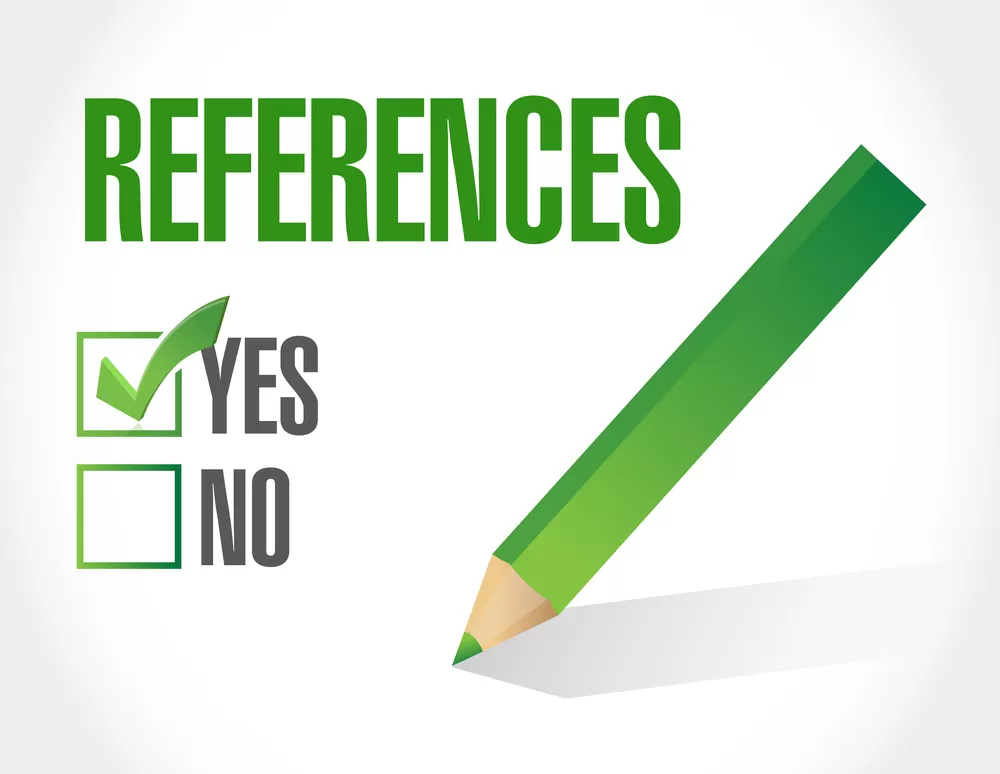Not everyone takes the time to call a prospective employee’s references. Many feel that the resume and work experience speak for themselves. Others just may not have the time and consider checking references to be optional.
But references can actually be much more important than many think. If you wouldn’t visit a new restaurant or make an online purchase without reading the reviews first, why wouldn’t you treat your hiring the same way?
Why Are References Important?
The primary purpose of calling references is to ensure that the candidate is a good fit for your company and wasn’t lying on their resume, but they can provide so much more information than that. It’s difficult to know ahead of time whether a new hire will be good or bad. There’s always a risk with every prospective employee, but contacting references helps mitigate that risk. You can find out ahead of time that a candidate wouldn’t be a good fit for your company.
Alternatively, you may find that a candidate with a less impressive resume could be a perfect fit.
Best Practices to Keep in Mind When Contacting References
Whether or not a candidate is a good fit for your company isn’t necessarily something that you can determine from the resume alone. Even for promising candidates, it’s a good idea to always check references. Someone who looks great on paper or who interviews well could end up not being a good fit for your company and you might not find out until it was too late if you didn’t call their references. Even if no red flags come up during the reference check process, calling references can help you learn how best to manage that candidate should you choose to hire him or her.
Front-Load Your Questions
Just like you, the references you’re calling are very busy people. Make sure to ask the most important questions first. If the reference then has to cut the call short, you’ll still have the answers you needed. These first questions should be the ones that the candidate and the resume can’t answer alone.
What Are the Best Questions to Ask References?
Contacting references is important, but it’s more valuable if you know the right questions to ask when checking references. Start by getting to know the person you’re calling. Find out who they are and what relation they have to the candidate. If the reference is a work reference, ask how that person worked with your candidate and how long that was.
This information can tell you how much weight you should give to the reference that the person gives. The word of someone who worked with the candidate for longer and in a closer capacity should be considered more strongly than someone who did not. The following reference check questions can help you get started so you know the right questions to ask when calling references.
What Are the Candidate’s Greatest Strengths?
Your candidate will have told you the answer to this question in the resume and in the interview. However, it’s a good idea to get an outside perspective. People who worked with that candidate may see their strengths differently. It’s important to consider whether the reference was a coworker or manager of your candidate, as each will have a different perspective. Asking this question can help you see what abilities and skills the candidate could bring to your company.
What Are the Candidate’s Greatest Weaknesses?
Asking about weaknesses is also important. Everyone has weaknesses, so this question shouldn’t be used to weed out any candidate that isn’t inhumanly perfect. Instead, use it to determine whether or not the candidate’s weaknesses would be a critical problem with the position for which you’re considering the candidate.
What Was One of the Candidate’s Most Memorable Accomplishments?
The answer to this question can give you an idea of whether or not the candidate is willing to go above and beyond the expectations of their job description. You may hear about a time the candidate was able to overcome a significant challenge. Whatever story the reference tells can give you an idea of how the candidate would handle challenges at your own organization.
What Type of Work Environment Do You Think the Candidate Would Thrive in, and Why?
Asking this question can help you determine if a candidate is a good fit for the position in terms of personality and work style. You can find out if the candidate thrives better when they’re in a group or if they work better alone. You can learn if they work better with supervision or if they’re great at getting things done on their own. How well the candidate would fit both your company and the position they’re applying for won’t necessarily be clear from the resume.
Why Did the Candidate Leave the Reference’s Company?
There are a variety of reasons why a candidate might be looking for a new job. They could be looking for a better opportunity or they could have been fired. While the candidate may have explained the reasons in the interview, asking the reference can bring an outside perspective on the situation. Even if the candidate was fired from their previous position doesn’t mean you should immediately stop considering him or her. It’s possible that the candidate simply wasn’t a good fit at the other company.
If You Could Hire the Candidate Again, Would You Do So?
If the reference would be happy to hire the candidate again, that speaks volumes about the candidate’s skills and work ethic. If the reference wouldn’t hire the candidate again, be sure to listen carefully to the reasons why. The reasons could contain major red flags that might cause you to reconsider hiring the candidate. On the other hand, the candidate could have been a poor fit for that company, but a much better fit for yours.
Are you looking for a HRIS software solution to help your company manage its hiring and candidate management? Let us match you with the software that best fits your needs. Visit our Software Match page to get started.
Sources:












